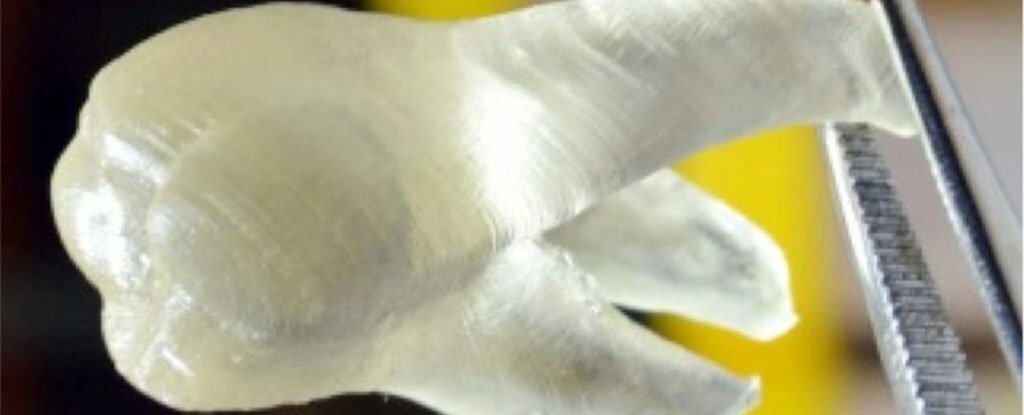A new innovation in 3D printing may lead to the eventual replacement of traditional fillings for your teeth.
Researchers in the Netherlands have been working on a new technology for the dental industry. The plastic teeth implants feature antimicrobial quarternary ammonium salts that are resistant to bacteria, preventing tooth decay and other problematic situations.
“The material can kill bacteria on contact, but on the other hand it’s not harmful to human cells,” one of the researchers, Andreas Herrmann of the University of Groningen, told Jacob Aron at New Scientist.
Science Alert reports:
The addition of alternative materials to a basic polymer is one of the current challenges in 3D printing, but the incorporation of active chemical substances such as the antimicrobial salts used here could be a huge boon for the medical industry, which could use sterile or antimicrobial 3D implants in a huge range of potential applications.
“[W]e have a prototype at hand that is suited for further testing in a clinical setting, including not only dental applications but also, for instance, orthopaedic ones like spacers and other polymeric parts used in total hip or knee arthroplasties,” the researchers write in their paper. “Moreover, the approach to developing 3D printable antimicrobial polymers can easily be transferred to other non-medical application areas, such as food packaging, water purification, or even toys for children.”
To test the efficacy of their antimicrobial plastic, the researchers coated samples of the resin in a mixture of the saliva and Streptococcus mutans bacteria – a significant contributor to tooth decay. The antimicrobial material killed 99 percent of the bacteria, whereas a sample of untreated resin resulted in 99 percent of the bacteria remaining.
“For clinical use we need to extend this [research], and investigate the compatibility with toothpaste,” said Herrmann, but the researchers are confident for the prospects of antimicrobial dental implants. “It’s a medical product with a foreseeable application in the near future, much less time than developing a new drug.”
The research is published in Advanced Functional Materials.
Photo credit: J Yue, P Zhao, J Y Gerasimov et al/University of Groningen.

